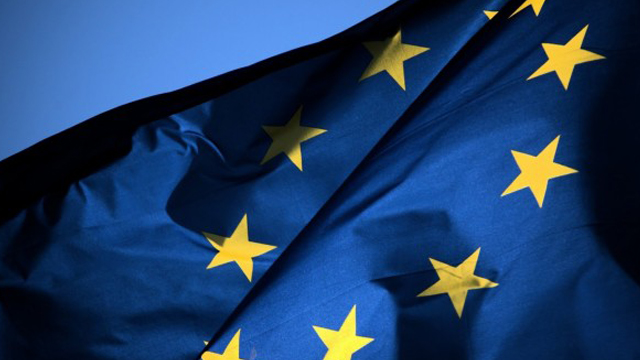Civil society organisations sent an open letter to the EU Commission to criticise the new call for drug policy grant proposals that almost only focuses on law enforcement and excludes harm reduction.
Since the Drug Unit of the EU Commission was relocated to the Internal Security Department, civil society has been concerned about the continuous shifting of its approach towards a more repressive, law-and-order direction from a balanced, integrated model of drug policies.
The new call for proposals launched by the Commission is another step in this direction. Unlike the previous EC JUST drug policy grant calls, this funding mechanism almost only focuses on supply reduction. From its four objectives, three focuses on improving supply reduction, it has only one objective on drug prevention – while harm reduction is completely missing.
Correlation – European Harm Reduction Network (C-EHRN), an umbrella of European harm reduction organisations (Rights Reporter Foundation, the organisation operating this website, is a Steering Committee member) sent an open letter to Ilva Johanson, Commissioner of Home Affairs, and Fiona Sipala, the head of the Drug Unit of the EC, to address this issue.
The text of the open letter:
“We write to you on behalf of Correlation – European Harm Reduction Network (C-EHRN), representing 158 civil society organisations (CSO) working in the area of harm reduction drug policy in Europe. C-EHRN is part of Foundation De Regenboog Groep and, as such, is also represented in the EU Civil Society Forum on Drugs.
Together with the undersigned networks, we would like to express our concern and disappointment with the current call of the Internal Security Grant concerning better law enforcement in the area of illicit drug trafficking. We believe this call does not reflect the principles of an evidence-based, integrated, balanced and multidisciplinary approach to the drugs phenomenon and is not in line with the Drug Strategy of the European Union. The call has a narrow focus on law enforcement interventions, with no objectives to improve complex public health and social services, including harm reduction.
For several years, the members and organisations we work with have benefited from the EC JUST Drug Policy grants launched by the European Commission. These grants demonstrated the balanced, evidence-based and multidisciplinary approach to drug policies in accordance with the core principles of the European Union. They provided an excellent opportunity for civil society organisations working in the field of drugs to cooperate internationally and exchange knowledge and good practices.
When the Drugs Unit was moved from the Justice Department to the Internal Security Department, civil society organisations were promised that this would not affect the balanced and multidisciplinary approach to drug policies of the EU Commission. However, the apparent shift towards law enforcement and crime prevention proves different – with social and public health aspects slipping off the agenda.
The Internal Security call lays only limited emphasis on drug demand reduction and none at all on harm reduction. At the same time, no other EU Programme took over this responsibility, leaving drug demand and harm reduction behind, without any opportunity for EU funding and support.
This is an extremely concerning development. EU funding has become increasingly important in recent years because of the emerging funding crisis for harm reduction, especially in the Eastern part of the European Union. Since the 2008 economic crisis, funding for harm reduction has constantly been declining in most Member States. Several essential services operated by CSOs have been closed down or curtailed due to budget cuts and the retreat of international donors.
On top of the funding crisis, CSOs experience a shrinking space for civil society in several Member States, where governments are increasingly hostile to those organisations that receive international funding or work with marginalised groups of society. With decreasing national and local funds, direct funding from the European Commission was often the only funding opportunity to improve advocacy and innovation in the harm reduction field for many organisations. This opportunity is now lost.
DG Home is the department within the EC responsible for developing and implementing a balanced, integrated and evidence-based EU Drug Policy. Such a balanced approach requires that funding mechanisms are available for all drug policy areas and not only for law enforcement and crime prevention programmes. We, therefore, call upon the European Commission and DG Home to reinstall the funding mechanism for drug demand and harm reduction to ensure a balanced and evidence-based drug policy also in the future.
We look forward to your response and hope for your continued support for civil society in the area of drug policy and harm reduction.”
The Drug Policy Network South East Europe is one of the signatory Networks & Organizations to this letter. Other include:
- AIDS Action Europe [AAE]
- EU Civil Society Forum on Drugs1
- EU HIV/AIDS, Viral Hepatitis and Tuberculosis Civil Society Forum
- Eurasian Harm Reduction Association [EHRA]
- European AIDS Treatment Group [EATG]
- European Network of People Who Use Drugs [EuroNPUD]
- Forum Droghe
- Harm Reduction International [HRI]
- Federation des Acteurs en Education en Promotion de la Sante de Guyane [AGRRR]
- International Drug Policy Consortium [IDPC]
- International Network of People Who Use Drugs [INPUD]
- MAINline
- Positive Voice
- Red de Atencion a las Adicciones [UNAD]
- ReShape
- Youth Organizations for Drug Actions [YODA]

